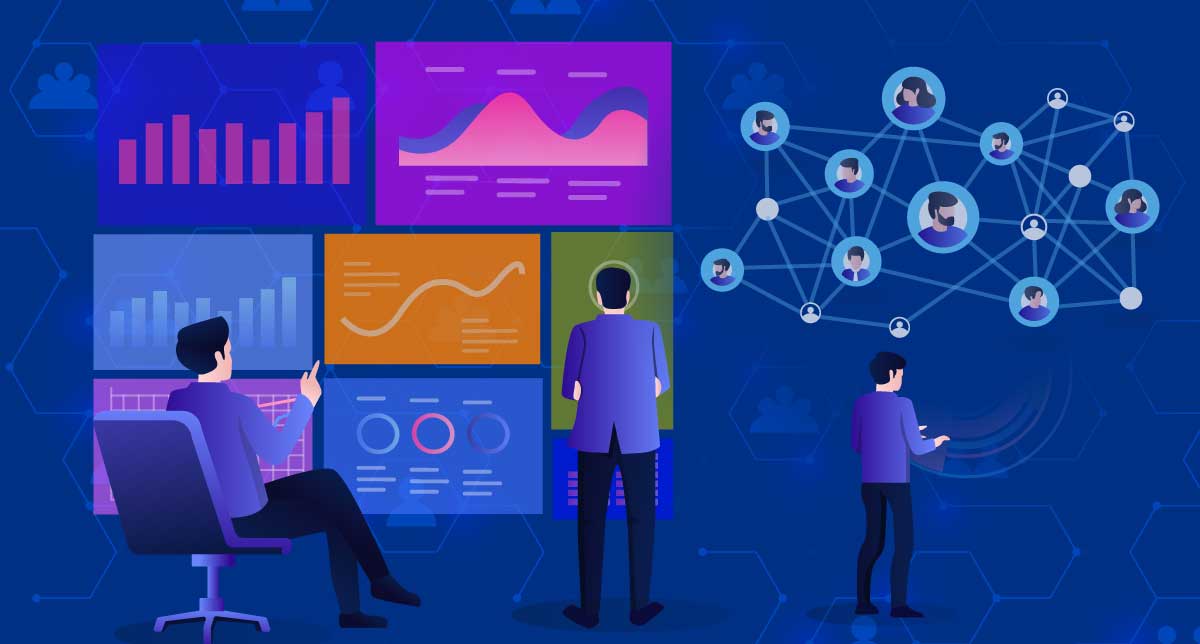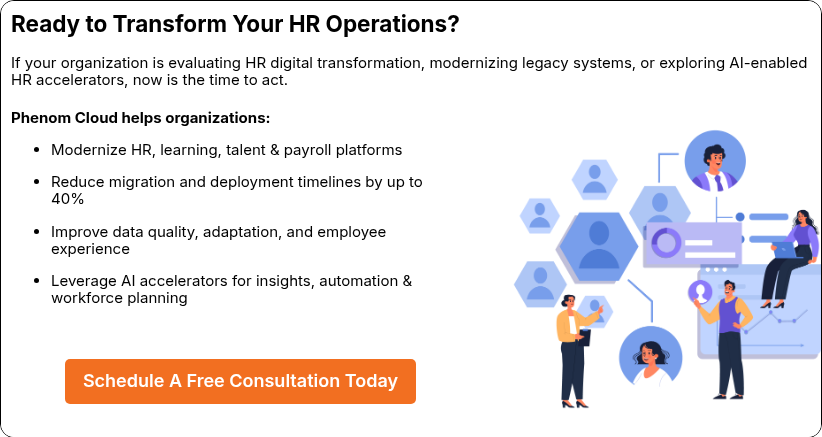Migrating from one Learning Management System (LMS) to another is never a simple lift-and-shift. It is a complex, multi-phase process that touches thousands of records, diverse content types, user histories, certifications, curricula, and compliance data. The risks are high: poor data quality can derail timelines, break reporting, and cause major disruptions for your employees.
For decades, Human Resources (HR) was known primarily as an administrative function—managing payroll, maintaining personnel files, coordinating benefits, and enforcing policies. But that era is long gone. Today, HR is one of the most strategic functions inside an organization, influencing culture, retention, productivity, talent development, and even business growth.
What changed?
Cloud platforms, automation, AI, and analytics have transformed HR from a reactive, paperwork-heavy function into a proactive, insight-driven business partner. Modern HR is no longer just a system of record; it has evolved into a system of intelligence, empowering teams, managers, and employees with real-time data, automation, and personalized digital experiences.
In this article, we’ll explore how HR technology is reshaping the employee lifecycle, why AI-enabled HR platforms are becoming non-negotiable, and what the future of HR looks like for organizations that want to attract, retain, and empower top talent.
What Is Modern HR Technology?
Modern HR technology goes far beyond traditional HRIS or payroll software. Today’s platforms are cloud-based, AI-powered, mobile-first, and deeply integrated across the full employee experience, from recruitment to retirement. These systems centralize data, automate processes, and enable predictive insights, making HR faster, smarter, and more employee-centric.
Key characteristics of modern HR platforms include:
| Old HR Systems | Modern HR Platforms |
| Manual, paper-based, siloed | Automated, cloud-based, integrated |
| Data entered manually, used for reporting only | Real-time data + predictive analytics |
| One-size-fits-all workflows | Personalized employee experiences |
| Focus on transactions | Focus on engagement, development & retention. |
| HR owns all processes | Self-service for managers & employees |
Instead of simply storing data, modern HR systems interpret data and recommend actions, from hiring to learning to performance to workforce planning.
Key Capabilities of Intelligent HR Platforms
Smarter Talent Acquisition & Recruiting Automation
Recruiting has undergone a massive shift. Instead of manually screening hundreds of resumes, talent acquisition teams now use AI and machine learning to accelerate hiring and improve quality.
Capabilities include
- AI-powered candidate matching that ranks applicants based on skills, experience, and cultural fit
- Evaluating candidate's social and opportunity index.
- Automated scheduling & interview coordination that eliminates back-and-forth emails
- Personalized hiring journeys with chatbots, branded portals, and real-time status updates
- Recruitment analytics to track hiring velocity, cost per hire, funnel performance, and diverse metrics
Impact
- 40–60% faster hiring cycles
- Higher quality of hire and lower recruitment cost
- Stronger candidate experience and employer brand
Streamlined Core HR & Workforce Operations
HR teams used to spend 60–70% of their time on administrative tasks. Now, automation handles much of the routine work.
Modern HR systems enable
- Centralized employee records and data governance
- Automated onboarding, document signing, provisioning, and offboarding
- Digital leave, attendance, and workforce scheduling
- Compliance workflows and audit trails are built into the system
Impact
- Reduced manual workload and error rates
- Faster HR service delivery
- Higher data accuracy and regulatory compliance
Employee Performance, Learning & Career Growth
HR is no longer just about managing employees; it’s about developing talent and enabling internal mobility.
Intelligent platforms support
- Continuous performance check-ins instead of annual reviews
- Skill gap analysis and personalized learning plans
- Career pathing tools that show employees internal growth opportunities
- AI-recommended learning content tied to business goals and skills of the future
Impact
- Higher employee engagement and retention
- Stronger leadership and succession pipeline
- Culture of continuous learning and internal mobility
Advanced People Analytics & Predictive Insights
Analytics is now one of the fastest-growing areas in HR tech. Instead of reporting what happened, modern systems help HR leaders understand why it happened and what will happen next.
Some Examples:
| Traditional HR KPIs | Modern Predictive HR Insights |
| Attrition rate | Which teams are most likely to lose talent & why |
| Training hours | Skill gaps by role, performance impact, reskilling forecast |
| Time-to-hire | Which roles will become hard to fill in 90 days |
| Engagement score | Early warning signals of burnout & disengagement |
Impact
- HR becomes a data-driven strategic function
- Leaders can make proactive workforce decisions
- Better forecasting = fewer surprises + lower turnover costs
Employee Self-Service & Digital Workforce Experience
Today’s workforce expects the same digital convenience at work that they experience in apps like Spotify, Uber, and Amazon. Modern HR platforms deliver that with:
- Mobile self-service for pay, benefits, leave, and career programs
- AI chatbots for HR questions, policy answers, and case resolution
- Employee communities, feedback channels, and recognition tools
- Seamless integration with collaboration tools (Teams, Slack, etc.)
Impact
- More empowered workforce
- Less HR helpdesk volume
- Higher satisfaction and transparency
Why HR Technology Matters More Than Ever
HR leaders today face challenges that old systems were never built for:
- Hybrid, Gig & remote workforce management
- Skills shortages and rapid workforce reskilling
- Employee burnout and rising turnover
- AI and automation are changing job roles faster than ever
- Compliance complexity across multiple states/countries
Modern HR technology is no longer a “nice-to-have”—it is the engine for people strategy, business agility, and competitive advantage.
Companies investing in modern HR technologies are seeing measurable gains:
- 30–40% reduction in HR admin time
- 2–3x improvement in learning adoption
- 25% increase in employee satisfaction
- 40% faster data-driven decision making
- 2–4x return on digital transformation investment within 2 years
The Future of HR - AI, Automation & Skills Intelligence
The next evolution of HR is not just digital; it’s intelligent.
Future-ready HR platforms will
- Predict attrition before it happens
- Recommend learning, career moves, and internal mobility paths
- Auto-generate job descriptions, performance reviews, and workforce plans
- Use skills intelligence to build dynamic talent ecosystems
- Integrate generative AI for HR knowledge queries and support cases
The HR function of the future will be
- More strategic
- More employee-centric
- More analytics-driven
- More aligned with business outcomes
The question is no longer “Should we adopt HR technology?”
It is “How fast can we transform and who will lead it?”


Leave a Comment